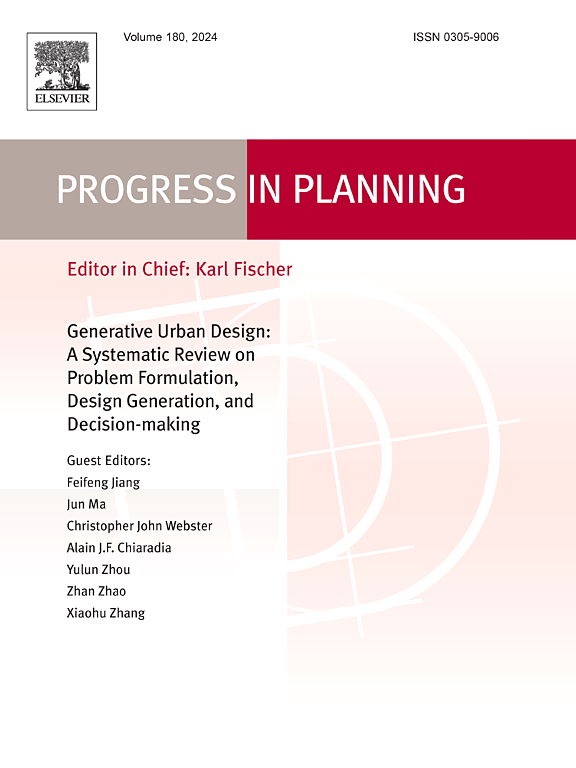景观科学、沿海工具和景观变化:来自葡萄牙的进化见解
IF 5.7
1区 经济学
Q1 ENVIRONMENTAL STUDIES
引用次数: 0
摘要
自20世纪中期以来,欧洲景观,特别是沿海地区,面临着主要由沿海化驱动的全球和国家趋势的重大变化。虽然研究已经探索了欧洲及其他地区沿海景观变化的各个方面,但一个基本的差距仍然存在:了解沿海规划工具中景观的概念化和整合如何影响更广泛的景观变化演变。本研究通过对葡萄牙北部地区三个城市的进化解释性多案例研究分析来解决这一差距,研究了三种区域沿海规划工具中景观的概念化和整合如何影响1965年至2018年的沿海景观变化。研究结果表明,各滨海规划工具的景观整合程度不同,直接影响景观保护水平。研究表明,高水平的景观整合可以显著增强沿海景观保护。关于景观的概念化,出现了一个意想不到的发现。虽然人们可能期望整体概念化会导致高水平的整合,但情况并非总是如此。研究结果还强调了受欧盟强烈影响的潜在叙事如何塑造了对沿海景观的解释和实际管理。我们的研究最后呼吁在不同的地理区域进行进一步的实证研究,以加深对沿海景观治理的理解。它还强调需要政治意愿来接受风险,并根据沿海景观不断变化的动态和社会生态价值,促进治理体系的方法和概念化的根本性转变,以实现沿海景观治理。本文章由计算机程序翻译,如有差异,请以英文原文为准。
Landscape science, coastal instruments, and landscape change: Evolutionary insights from Portugal
Since the mid-20th century, European landscapes, especially coastal regions, have faced significant transformations influenced by global and national trends, mainly driven by coastalisation. While studies have explored various aspects of coastal landscape changes across Europe and beyond, a fundamental gap remains: understanding how the conceptualisation and integration of landscape within coastal planning instruments impact broader landscape change evolution. This study addresses that gap through an evolutionary explanatory multiple case studies analysis of three municipalities in the Northern Region of Portugal, examining how the conceptualisation and integration of the landscape within three regional coastal planning instruments influenced coastal landscape changes from 1965 to 2018. Findings indicate that the degree of landscape integration varies among the coastal planning instruments, directly impacting the level of landscape protection. Our research suggests that higher levels of landscape integration could significantly enhance coastal landscape protection. An unexpected finding emerged regarding the conceptualisation of the landscape. While one might expect that a holistic conceptualisation would lead to high levels of integration, this was not always the case. Results also highlight how underlying narratives, strongly influenced by the European Union, shaped the interpretation and practical management of coastal landscapes. Our research concludes with a call for further empirical research across diverse geographies to deepen understanding of coastal landscape governance. It also emphasises the need for political will to embrace risks and foster a radical, transformative shift to approach and conceptualise the governance system in line with the changing dynamics and socio-ecological values of coastal landscapes towards coastal landscape governance.
求助全文
通过发布文献求助,成功后即可免费获取论文全文。
去求助
来源期刊

Progress in Planning
Multiple-
CiteScore
10.70
自引率
1.60%
发文量
26
审稿时长
34 days
期刊介绍:
Progress in Planning is a multidisciplinary journal of research monographs offering a convenient and rapid outlet for extended papers in the field of spatial and environmental planning. Each issue comprises a single monograph of between 25,000 and 35,000 words. The journal is fully peer reviewed, has a global readership, and has been in publication since 1972.
 求助内容:
求助内容: 应助结果提醒方式:
应助结果提醒方式:


